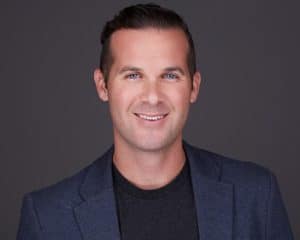After following some great job hunting tips, you’ve finally landed an interview! A job interview is your time to showcase your accomplishments and personality, but there’s also some etiquette to follow when you’re in the hot seat. The following interview tips for millennials — based on a millennial recruitment director’s experiences at a digital marketing startup — provide you with the ultimate guide before your next interview.
12 Interview Tips For Millennials, From A Millennial
Know the code for professional dress
Even if you know you’re interviewing for a position at a young startup — where casual attire is typically welcomed — treat it as any other interview setting. When it comes to what to wear for an interview, always opt for business-professional.
Avoid TMI
This goes for politics, religion, sex, and so forth. Never assume you and the interviewer are on the same page politically. Tread lightly, and don’t overshare your experiences or opinions. (I once interviewed a candidate who said she chose not to study abroad in western Europe because it was essentially “too basic.” She had no idea I studied in Paris for a semester.) Also, be careful about coming off as too relaxed — saying “I love napping” when asked about your hobbies may seem funny, but it could paint you as lazy in a job interview.
Make sufficient eye contact
You may not notice it sitting across the table from an interviewer, but solid eye contact will show the hiring manager that you’re engaged, interested and confident about the opportunity. Practice talking with hand gestures, too, to appear more animated in the interview.
Avoid saying “like” too often
It’s distracting. Where you might normally insert “like” between words, practice pausing and continuing on with your thought.
Pay attention to how you discuss future job prospects or plans
If the interviewer asks what your future career plans entail, try not to paint this job opportunity as a “stepping stone” to get where you want to be. Instead, share a general idea of your future aspirations but focus on what you’re interested in at this moment, in this field of work.
Polish your resume and bring copies to the interview
I’ve seen resumes with incorrect dates (as though the applicant still worked there but was in fact currently unemployed), and many with misspellings and grammatical errors. Double-check and triple-check your resume and cover letter to make sure those glaring mistakes don’t eliminate you from the running. Make sure to make a few copies of your resume, too, in case there’s more than one person interviewing you.
Use names directly
It happens to all of us — you shake hands, introduce yourself and immediately forget the name of the person you just met. It takes concentration and practice! While interviewing for my first internship in college, I had so many other thoughts bouncing around in my mind that I got the wrong name stuck in my head. My interviewer walked in the door, and I greeted her with, “Hi, you must be Ms. Anderson.” (Well, close — it was Robertson.) The point: using someone’s name (and getting it right, of course) is key to listening well and charming your interviewer. “Thank you so much for your time, Mr. Brown” has a better ring to it than just “Thank you for your time!” when leaving a job interview.
Dale Carnegie said it best in 1936: “The information we are imparting or the request we are making takes on special importance when we approach the situation with the name of the individual… Remember that a person’s name is to that person the sweetest and most important sound in any language.”
Don’t bash past employers or blame others
Whether you lost your job or left a former company willingly, don’t point fingers. It’s unattractive and unprofessional in an interview setting. If asked why you quit — and it was due to a manager or supervisor — keep it vague: “I felt my talents would be of better use at another organization, and I felt I was ready for a fresh, exciting opportunity.”
Otherwise, it will look like you have issues working smoothly with other people.
Turn negatives into positives
This is a great strategy when discussing two things: (1) what you disliked about your last job, and (2) responding to “What would you say is your biggest weakness?” Again, instead of trash-talking your former boss, focus on the opportunities ahead of you and what you look forward to in your next career move. (“Even though the role wasn’t what I hoped it would turn out to be, I’m excited about the idea of bringing my talents to this company and helping your team work toward this cool mission.”)
To answer the classic “biggest weakness” question, it’s important to be self-reflective while also playing the “used to” card. For example, “I used to find it tough to delegate work to my interns — as someone who typically manages whole projects on my own — but I’ve really worked to improve that aspect of my role as a leader and mentor.” Or, “I used to be bad at public speaking, but I’ve taken courses to hone that skill and even though I still get a little nervous, I have felt much more confident about it.”
Go easy on the cologne and perfume
A single spritz suffices. Don’t suffocate your interviewer in a small room!
Come armed with questions to ask the interviewer
Interviewing for a job is a two-way street. To show you’re curious about the company and the position, always come prepared with a handful of questions to ask an interviewer. Topics like “What brings you back to work here every day?” and “What does upward growth entail with this position?” will offer you insight into a career there and also impress your hiring manager.
Always send a thank-you email
It’s important to know how to write an interview thank you email. It’s the simplest way for you to stand out as a candidate and express your gratitude for your interviewer’s time and consideration of your application. Make sure you send it the same day of your interview (at most, the day after). This is one of the top interview tips for millennials that’s too often forgotten. Unfortunately, the hiring manager may forget you, too, should you skip the thank-you message.
What other interview tips for millennials would you add to this list?
Additional Resources:






